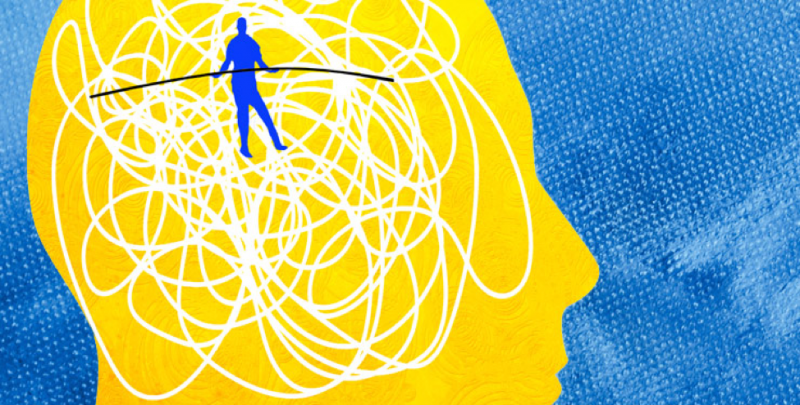Schizophrenia is a mental disorder in which people interpret reality in an abnormal way. But who is to say experiences of another are abnormal? Patients with schizophrenia may show positive or negative symptoms. Many times patients do not notice if their symptoms are causing them to perform in abnormal ways. Is treatment worth it if it negatively impacts quality of life? Maybe society needs to do a better job at accepting people for who they are instead of automatically assuming a person needs treatment. It’s a big question without a clear answer. More research must be done to see what specific pathways can be targeted to reduce symptoms and improve quality of life. In this blog, we will look deeper into the symptoms of schizophrenia and some of the research done on the signaling pathways that may be involved in the occurrence of these symptoms.
What is considered abnormal?
Many different types of symptoms can be present in patients with schizophrenia. These include positive, negative, and cognitive symptoms.
Positive Symptoms: delusions, hallucinations, thought disorders, psychomotor problems
Negative Symptoms: Loss or reduction in the ability to initiate plans, speak, express emotion or find pleasure in life; many times mistaken for laziness or depression
Cognitive Symptoms: problems with attention and memory; most disabling for patients trying to lead a normal life.
All of these symptoms may be abnormal, however, it must also me remembered that it is all on a spectrum. Symptoms may be noticeable, but they may not be affecting the patient’s quality of life or are threatening to the people around them. If a patient is experiencing hallucinations, who is to say that hallucination is affecting them in a negative way? Maybe the hallucination is a support system that is necessary for the person’s everyday life.
What is going on in the schizophrenia brain?
Schizophrenia is a brain development disorder. Current treatments do not focus on the underlying mechanisms involved in schizophrenia. These mechanisms involve the Wnt signaling pathway.
Wnt pathway à Schizophrenic Symptoms: When a Wnt ligand does not bind to the receptor, the intracellular destruction complex continues to exist. This complex keeps Beta Catenin phosphorylated thus decreasing the concentration of Beta Catenin. This leads to no transcription within the nucleus.
Wnt pathway à No Schizophrenic Symptoms: When a Wnt ligand binds to the receptor, recruitment of proteins facilitate the dissociation of the destruction complex. This decreases phosphorylation of Beta Catenin, which increases stability in the cytoplasm and increases translocation of Beta Catenin into the nucleus for where Wnt producing genes are activated for further transcription.
To simplify these pathways, Beta Catenin must enter the nucleus to cause gene transcription. Without transcription of Wnt dependent target genes, symptoms of schizophrenia may occur.
Treatment?
With this research, we know the destruction complex plays a critical role as to whether or not Beta Catenin enters the nucleus to cause gene transcription. More research must be done to exactly pinpoint the area pharmaceuticals should target.
The bigger question to me, however, is when to know when treatment is necessary. Treatments today do not specifically target the Wnt pathway and often cause detrimental side effects that dampen a person’s quality of life. Before resorting to pharmaceuticals, I believe holistic approaches may be more beneficial to get a full understanding of what the patient with schizophrenia is going through. This may involve one-on-one therapy to get an idea of the emotional, psychological, social, and physical aspects that may come along with schizophrenia.
For more information on the research done on Schizophrenia and the Wnt Pathway follow this link:
https://www.ncbi.nlm.nih.gov/pubmed/23379509
For more information on the symptoms of schizophrenia follow this link:
https://www.mayoclinic.org/diseases-conditions/schizophrenia/symptoms-causes/syc-20354443
